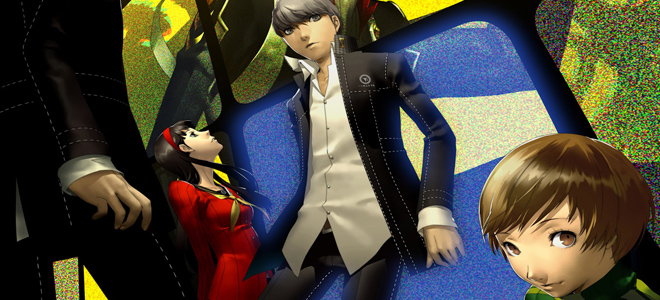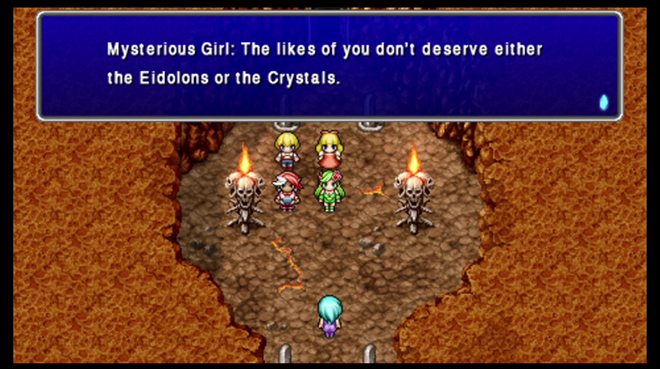Reflections on Persona 5 Royal

It wasn’t supposed to go this way, but here we are. Like an expansion pack to a Persona game, my partial catching up of the series spilled over into a new year with added content. So that means You can see my thoughts on Persona 5 this year instead of next.
This is going to be one of those spoiler-heavy posts, so run now if you need to preserve your first impression for later.
Themes
At its core, Persona 5 is a power fantasy. It’s about a plain kid whose life gets ruined by trying to do the right thing in a chance encounter with someone who revels in wielding his considerable power like a cudgel at the slightest provocation. A man who crushes ants with a 16-ton safe for the sport of it. And how that kid just happens to be a Chosen One uniquely suited to destroying the man who wronged him.
The entire game involves new characters joining forces with our intrepid hero, Joker, as Phantom Thieves to successfully get back at the adults who wronged them (often in absolutely heinous and criminal ways). All while the kids who are reversing the power dynamic do so in a morally defensible way by inflicting empathy on their targets. Unlike a traditional revenge plot, there’s no (intentional) death. The abusers publicly repent and suffer legal and social consequences for their actions.
And that repentance is key to the power fantasy. It’s not so much about getting even as it is setting things right. It’s about forcing the hand of an otherwise uninterested justice system. Victims are freed from abuse by a newly remorseful abuser that no authority believed was a problem … or knew and actively covered it up.
This power to the powerless and bringing evildoers to justice plot is replayed for each new dungeon and also each social link story. Like with Persona 4, Atlus knows the best thing to do with the links is to reinforce the main theme of the game: Finding justice for those cast out.
The plot gets a little ridiculous when it’s revealed that literally every problem is connected to that one asshole who ruined your life because he could. But that’s to be expected as it’s perfectly in keeping with a power fantasy.
Of course, at the end of the third act, we discover a god has been pulling the strings OF the strings, and the theming gets a little weak as we stop fighting for justice and start fighting for freedom. It’s a switch that will only become more strained with the addition of Royal, but we’ll get into that later.
While it seems a much simpler plot compared to the breadth of depth I reported from 3 and 4, it sells Persona 5 short. And the reasons why are the characters. Their vibrance fills any and all free space in the story to the point where it’s too easy to relate to them. Or maybe I just have a persecution complex. But it’s no less true that the writing and performances bring the characters to life, and the game allows ample time to let them live.
(This is also why anybody who has played the game can quickly determine that the anime sucks; so much of what makes these characters work just doesn’t make the trip.)
When examining the story in the context of the larger cannon of the series, Persona 5 is a striking throwback to the early games. The bet between Yaldabaoth and Igor was directly analogous to wagers between Nyarlathotep and Philemon in the first two games. Indeed, Nyarlathotep could easily have been substituted for Yaldabaoth with almost nary any additional change to the story.
Style
Simply put, Persona 5 does for visuals what Persona 3 did for music. Every little thing you do in this game, every single UI element, every single everything is bursting at the seams with the game’s signature style.
Not to say the music was unremarkable, of course. You may have heard me say on Discord that Persona 5 had the best soundtrack of the three modern Persona games (of the whole series is also true, but unfair). I didn’t think the music of Persona 4 contributed to its style anywhere near as much as Persona 3’s soundtrack did. Persona 5 understood the assignment to not only have music that is great, but music that is an extension of the game’s presentation and themes.
Surely, the only reason there hasn’t been a Recommended Soundtracks article on Persona 5 is because it would need to list about 100 tracks. There is a plethora of video game music out there that I love, but Persona 5 really stands alone as a soundtrack I would just pump though the house and just take in the vibes or make an impromptu dance number.
The visuals and music complement each other deeply. The pace and smoothness of the action pairs so well with the compositions I would be astonished if told they were not developed together to achieve that very end. The appearance of the game just wouldn’t gel if you had somehow dropped the sound track from one of the previous games into it.
Persona 5 likely owes its breakthrough success to style alone. It is, after all, the focuses of the robust ecosystem of memes that flourished after the game’s release.
Gameplay
While Persona 4 changed things up by having smaller dungeons that represented different locations, the floors were still made up of randomly generated hallways and rooms. Persona 5 does include a Tartarus-like many-floored central dungeon with random layouts, the story dungeons all have discrete designs that make them look like functional places. While these dungeons are going to be the same every time, it allows for much greater diversity in the dungeon design, traversal, puzzles… everything, really. It’s as though Atlus just plain didn’t have the time or budget for dungeons in previous games.
The dungeons themselves reinforce the whole Phantom Thief motif by having small treasures to steal along the way and all sorts of spots you can use to hide and sneak as you infiltrate the dungeons. There are very few areas in which you can’t set up an ambush for enemies or simply slip right on by them.
The gameplay additions also creep into the social links (I know they’re called confidents now, but I’m too used to the established terminology), with all of them providing additional a variety of quality-of-life options for both in and out of combat.
However, these options aren’t always implemented in a way that benefits the gameplay. A unique perk that Ryuji’s social link rewards, for example, allows you to run over enemies (literally in Mementos) that are weaker than the party, instantly winning a battle if you dash into them. The entire balance of the game shifts dramatically as soon as you learn the skill, as it trivializes combat. While you won’t start out overleveled, it’ll still allow you to take more fights than perhaps you would have otherwise. And once you get a high enough level that all the non-forced battles can be won instantly, it is practically impossible to ever fall behind again. While this greatly speeds up your pace through the game, it does come at a cost. You see, this is one of those poorly designed achievements that rewards you by removing gameplay. No longer do the stealth mechanics have any purpose. You won’t be negotiating with demons. You won’t get to do nifty tricks and combos in battle. The stockpile of healing items will become an unmanageable horde for lack of use. And, of course, all the other benefits you got from social links that apply to combat are useless if you never have combat.
Meanwhile other skills, like Tora’s maximum rank ability to recruit Persona with a higher level than Joker are no good as they typically much more useful in the early game but can’t be had in the early game. Demon negotiating skills in general aren’t very useful, as money is easy to come by and fused Persona are much more powerful than wild ones. Other abilities that affect the effectiveness of ambushes or alarm levels in palaces, are barely noticeable in action on the standard difficulty. Perhaps they become vital for a merciless run. So, while Atlus had a lot of good ideas for adding value to social links, in execution most of them were either game-breaking or dead weight.
The Royal Treatment
Each Persona game has a clear theme. They’re also about a god coming in out of nowhere at the end of the game who encourages apathy and then uses that apathy as an excuse to justify destroying the world (Though to be fair, the theme of apathy does appear in the games much earlier than the god du jour).
So (in addition to apathy), Persona 3 dealt with Death, as did The Answer. Persona 4 dealt with Truth, as did Golden. Persona 5 dealt with Justice… but there’s where Royal changes things up.
Royal is such a different story than the base Persona 5. It hardly seems like a continuation of the regular game as opposed to a direct sequel they attached in order to the original game in order to avoid adding in what would be a ridiculous amount of backstory.
We have a new antagonist, Dr. Maruki, who was built up in new scenes spread out across the timeline for the original game. While he’s also deeply connected to the grand conspiracy perpetrated by Shido, he’s the first victim rather than another co-conspirator. And rather than having a selfish motive, the counselor only wants to help. …but in the dumbest way possible.
But Dr. Maruki is presented as an absolute genius for his understanding of cognitive psience and developing practical application of it with absolutely no resources and literal government and corporate conspiracies actively sabotaging him. But for a heavily educated psychologist, he has an inexcusable lack of understanding whatsoever of trauma on even a conceptual level.
The point of Maruki’s character appears to be that he doesn’t understand trauma because he always ran from it. And that’s a good enough explanation for anybody else, but there’s no reason to believe that should be the case for somebody who went through, at minimum, a PsyD program. Though I suppose he’s just the next in a tragically long line of people who literally know better just plain doing wrong anyway. All this dipshit does is set the world’s population up to be retraumatized if even the slightest part of his scheme doesn’t work as desired or is otherwise interfered with.
It could be fine and dandy for his warped perspective on trauma be the result of his palace. It being a distorted desire is an easy and consistent explanation within the world of the game that the game opts not to avail itself of.
His shallowness and selfishness are on full display with his treatment of Sumire after he conquers Mementos: Rather than bringing her sister back to life, as he had done to grant the wishes of others who lost a loved one, he doubles down on the original, non-Mementos solution for her, which relies on the assumption that Sumire’s sister must stay dead for Sumire to ever be happy, which is as deep a level of fucked up as Maurki’s comprehension of trauma is shallow.
And this is but a sample of the several ways the story of Royal and the ideological conflict it presents aggravates me.
It was kind of boring and repetitive to see the protagonists grapple with the concept of truth vis-a-vis reality when the “lesson” from the game immediately preceding this was all about treating capital-T truth as an absolute. I’m not saying that the series can’t have consistent themes (see also: apathy, bonds); that’s part of what makes something a series after all. But it felt like they were just reinventing the wheel in lieu of a more novel idea. And the wheel that resulted from that process was of lower quality. The altered setting of Royal was also very damn reminiscent of the anime-exclusive “Lotus Eater” event in the final battle of Persona 4 The Animation.
It also ruined my ability to use Persona 5 for escapism. I’ve not always made friends with the right people, and that synergies badly with my defensive nature to the point where the situation evolves into one that maximizes the costs. So I absolutely love a story that deeply brings a group of people together (Original true ending to vanilla Persona 5, everyone going on a road trip to take Ren home and see where he grew up) and absolutely hate a story that splits deeply connected people apart (True ending of Royal — Ren goes home alone, damn near everybody splits up and I hate how reasonable it all is). The fact that the story beats of Royal also serve to call me wrong for wanting escapism out it to begin with just rubs it in. It almost reminds me of the sanctimonious throwaway line near the opening of Sucker Punch that tried (and failed) to frame the movie as a satire. Perhaps I’m reading too much into it, but I get the impression that I’m wrong for preferring the original way things worked out, because it would be standing in the way of character development to want everybody to still have that road trip. The events of Royal were extreme and absolutely should have influenced the perspectives and plans of our characters. Though to me, it’s all a little too reminiscent of people drawing motivation from abusive therapy being used to justify abusive therapy.
Finally, unless this is intended to set up future conflict between SEES/Shadow Operatives and the Phantom Thieves of Hearts, Persona 5 proposed a way to save Makoto Yuki — a motivation so central and defining to this world that it directly caused two new wild cards to manifest (and a third indirectly) and the through line between all the modern Persona games and their spinoffs and why The Answer could never truly have been excluded from Reload — only for Royal to turn around and take that option off the table. Which is pretty cruel considering Maruki’s machinations probably brought Makoto back to life just long enough to rub salt in the wound before he’s absent again.
All the pain Dr. Baka-ki put everyone through with naught but two brain cells and road-pavingly good intentions to guide him seems to bear out in the true credits to Royal. While the music itself simply doesn’t belong with the rest of the soundtrack, it’s such a mournful song in sound and lyric as though to lament the emotional wringer everyone had to go through to get to the end.
Hearing “Our Light” as the camera makes a slow pan across a single piece of art with spotlights fading in and out really couldn’t contrast more with the new fake ending. Seriously; Atlus spent all the money on the fake credits with plenty of story scenes and an instrumental track more in keeping with the timbre of the soundtrack. It all has the odd effect of making the fake credits feel more legitimate, so Atlus skewed the staff roll 20 degrees counterclockwise to remove any doubt that the false reality was not the right path.
Contrast the true ending credits with the good ending credits of the original Persona 5, which does much more to showcase the cast to the point it makes the true ending credits feel like a memorial.





